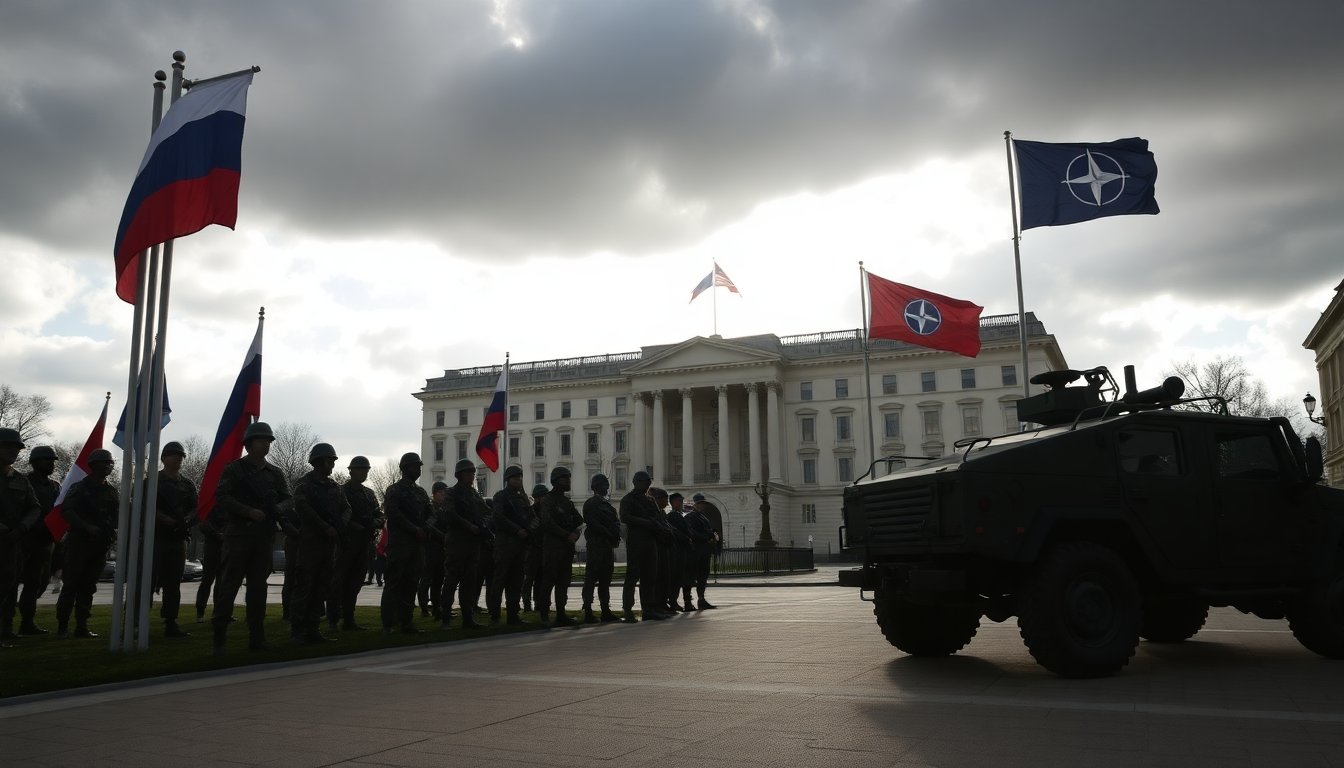Table of Contents
The geopolitical landscape is undergoing significant changes as Russia’s foreign minister claims that the nation is engaged in a serious conflict with NATO and European countries. This statement emerges amid rising military tensions, complicating international relations and security dynamics in the region.
Recently, former President Donald Trump expressed confidence in Ukraine’s ability to prevail against Russian aggression, potentially reclaiming all territories lost in the conflict. This optimistic perspective adds complexity to the ongoing discussions surrounding the war.
Current state of the conflict
As the situation develops, the ramifications of Russia’s stance are critical. The foreign minister’s remarks signal a notable escalation in hostilities, indicating that Moscow views its actions as part of a broader conflict with NATO rather than merely regional disputes.
Labeling this conflict as a ‘real war’ acknowledges the gravity of military engagements and the risk of further escalation. Such rhetoric aims to garner domestic support and frame Russia’s actions as defensive against perceived external threats.
Ukraine’s prospects
In light of these developments, Trump’s comments regarding Ukraine’s potential to regain lost territories resonate with many observers. His claim that Ukraine could achieve victory and reclaim its territory emphasizes the resilience and determination of the Ukrainian people.
This viewpoint holds significance for several reasons. Firstly, it underscores the international community’s backing of Ukraine, essential for maintaining morale and fostering ongoing resistance against Russian advances. Secondly, it raises questions about the implications of such a victory for Ukraine and the broader European security landscape.
The role of NATO
NATO’s involvement in this conflict is crucial. The alliance has firmly opposed Russian aggression, providing Ukraine with military aid and strategic guidance. The foreign minister’s comments imply that Russia perceives NATO’s actions as direct provocations, escalating the conflict further.
This perspective creates a delicate balance in international relations, where both sides must manage a complex web of diplomatic interactions and military posturing. The challenge remains in navigating these tensions without escalating into a larger, destructive conflict.
Looking ahead
As the war persists, the implications for European security become increasingly evident. The possibility of a protracted conflict raises concerns about regional stability and the long-term effects on international relations. With Russia adopting a more aggressive stance, the urgency for diplomatic solutions is paramount.
The remarks from Russia’s foreign minister, alongside Trump’s optimistic outlook for Ukraine, highlight the intricate dynamics of this ongoing conflict. The global community observes closely as these nations navigate a challenging path, with high stakes for all involved. The future remains uncertain, but a commitment to seeking resolution is essential for restoring peace and stability.


